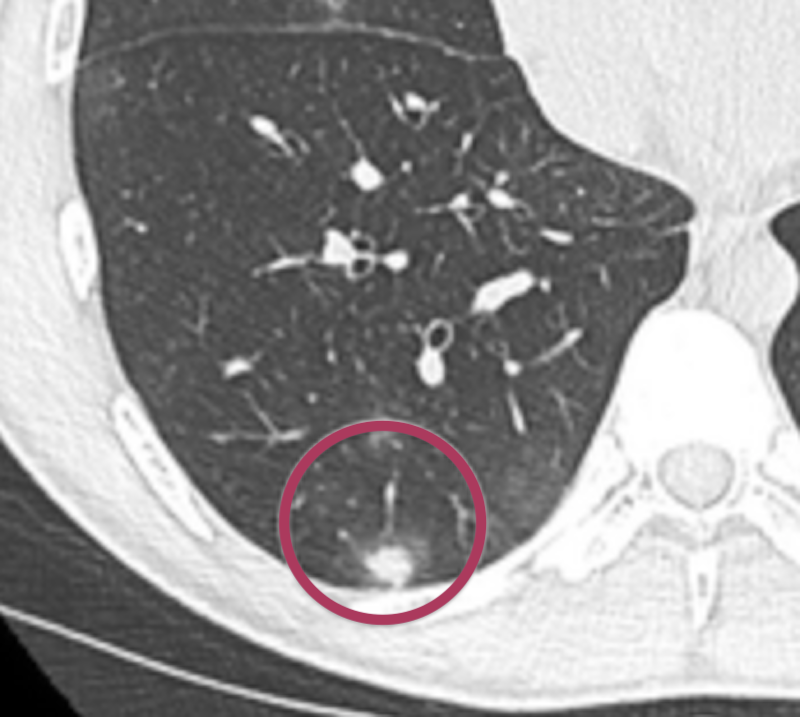Lung Nodules
AI lung nodule detection in CT.
Modality:
Low-dose CT
Pathology:
Lung nodule growth, lung cancer
Status:
Concluded

CSC Lead: Anil
This project has been withdrawn. A horizon scan at the time identified multiple commercial AI products that were deemed suitable for resolving this clinical problem, but clinical needs shifted, and it became deprioritised. This project may be revisited at a later date, but it is not currently being actively worked on.
Despite there being no current national screening program for lung cancer in the UK, some areas in England offer Lung
Health Checks targeting high-risk populations. Screening is achieved through low-dose chest CT but requires a
trained thoracic radiologist to accurately detect and characterise lung nodules; a process that is repetitive and time-consuming. Lung nodules can be hard to identify, and a volumetric assessment is required for lung cancer indication.
General radiologists assessing a patient’s chest LDCT performed for other reasons may lack the training to
detect lung nodules, potentially missing diagnoses. AI software that could pre-read and report lung nodules means general radiologists could produce nodule management plans not dissimilar to those reported by a thoracic radiologist, therefore improving confidence in cancer work and reducing the burden on thoracic radiologists.
Patient pathway
In virtual clinics, Thoracic Radiologists and Physicians discuss patients with incidental nodules picked up on CTs done for other reasons. Preparation for these meetings is time-consuming.
Testing data
200 patients – found on PACS retrospectively using the patients from Lung Nodule Clinics. All patients for lung nodule follow-up are imaged with a standard low-dose chest CT protocol.
Risks
Patients do not receive follow-up for lung cancer, leading to worse outcomes, more complex treatment, and higher treatment costs. Patients receive needless imaging and investigations. Incorrect volume assessment leads to misdiagnosis of lung nodules. Pipeline failure could result in delayed or missed diagnoses.
Goals
An automated computer-aided diagnostic tool integrated with the low-dose chest CT protocol that accurately detects and characterises lung nodules and reports the patient for further investigation, resulting in a more streamlined workflow that is efficient at screening for lung cancer.
Success criteria
Non-inferiority to trained thoracic radiologists for lung nodule detection. Reduction in radiologist workload.